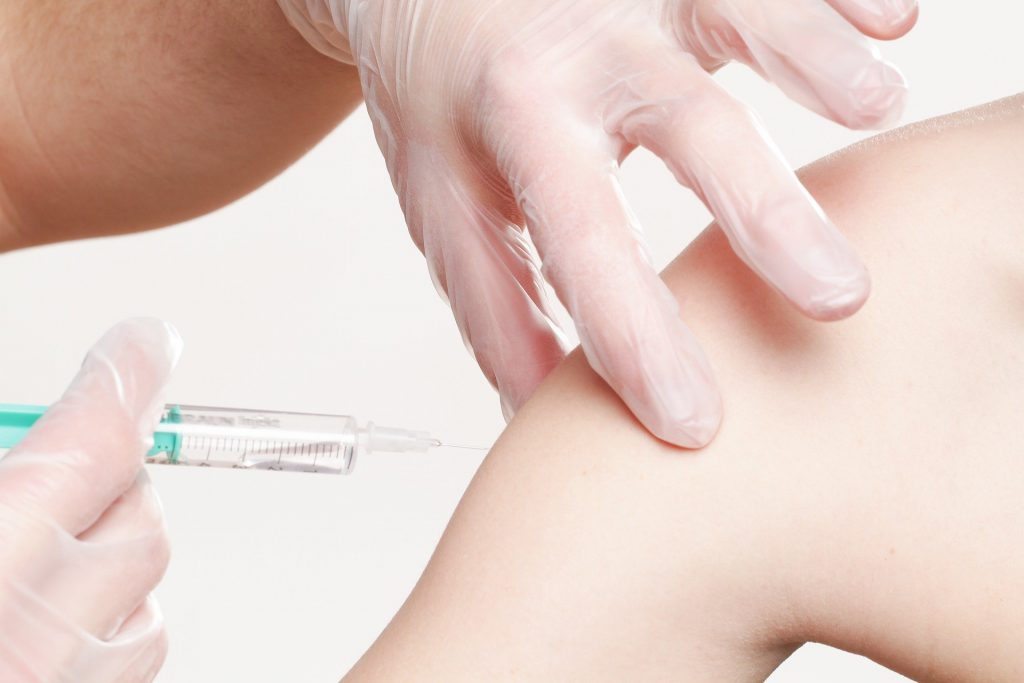First Moderna Vaccines Arriving This Week
Wisconsin expects approximately 100,000 doses of Moderna's COVID-19 vaccine.
A second COVID-19 vaccine was approved by the U.S. Food and Drug Administration (FDA) last week for emergency use, and the first doses are arriving in Wisconsin this week.
Governor Tony Evers issued a statement Monday saying the state expects to receive 16,000 doses this week of the Moderna vaccine, with up to 100,000 doses arriving in subsequent weeks.
Moderna is a biotechnology company headquartered in Cambridge, Massachusetts. Its COVID-19 vaccine is an mRNA vaccine, same as the Pfizer/Biotech vaccine. The efficacy of the Moderna vaccine was shown to be 94.5% in a clinical trial that involved more than 30,000 participants, of which approximately half were given the vaccine while the other half were given a placebo.
The Moderna vaccine has an advantage over the Pfizer vaccine in that it can be delivered directly to vaccinating entities because it can be stored at normal refrigeration temperatures of 36 to 46 degrees. The Pfizer vaccine requires dry-ice and storage temperatures as low as 94 degrees below zero.
mRNA vaccines teach the body to fight a viral infection by using a small piece of the COVID-19 virus to teach your cells to build a COVID-19 spike protein. This spike teaches the body to recognize the virus and build antibodies against it. “So that way if the real virus enters our body in the future,” Dr. Ben Weston, medical services director for Milwaukee County, has explained, “your immune system is familiar with it and it’s trained to fight it off without you getting sick.”
An mRNA vaccine does not affect your DNA. “In fact, they don’t even enter the part of your cells that contain the DNA,” he said. “As soon as they do their job – they make that little spike protein – they’re broken down by our bodies and they’re gone,” Weston said.
Like all vaccines and medical treatments, the Moderna vaccine does have the potential to produce side-effects. A report submitted to an FDA committee that reviewed the vaccine shows the most common side effects in the clinical trial were pain at the injection site (91.6%), fatigue (68.5%), headache (63.0%), muscle pain (59.6%), joint pain (44.8%) and chills (43.4%). Most side effects were experienced after the second dose.
The state Department of Health Services announced Monday that 10,358 doses of the Pfizer vaccine have been administered so far.
Given the limited supply of vaccine, doses are being prioritized based upon guidance from the Centers for Disease Control and Prevention. The first phase of vaccines is going to frontline healthcare workers and residents in long-term care facilities, which include nursing homes and assisted living facilities.
The state has started gearing up its program to perform on-site vaccinations at long-term care facilities starting December 28th.
Last week, the state announced it was expecting an allocation of 49,725 doses of the Pfizer vaccine. Then, a few days later, the federal government informed the state that its allocation was being reduced and its initial allocation would instead be 35,100.
“While we do not have control over how much vaccine the federal government allocates to our state,” Evers said Monday. “I can promise that we are doing everything we can to ensure that our distribution is fair and equitable.”
The state’s DHS is now saying Wisconsin’s Pfizer allocation has grown. The state is expecting 84,825 doses.
The state and DHS ask that people remain patient, as they work to acquire more vaccine. It’s expected to take months for vaccine production and distribution to scale up to allow for widespread public vaccination.
Read the Moderna Vaccine FDA Briefing Document here.
If you think stories like this are important, become a member of Urban Milwaukee and help support real, independent journalism. Plus you get some cool added benefits.
More about the Coronavirus Pandemic
- Governors Tony Evers, JB Pritzker, Tim Walz, and Gretchen Whitmer Issue a Joint Statement Concerning Reports that Donald Trump Gave Russian Dictator Putin American COVID-19 Supplies - Gov. Tony Evers - Oct 11th, 2024
- MHD Release: Milwaukee Health Department Launches COVID-19 Wastewater Testing Dashboard - City of Milwaukee Health Department - Jan 23rd, 2024
- Milwaukee County Announces New Policies Related to COVID-19 Pandemic - David Crowley - May 9th, 2023
- DHS Details End of Emergency COVID-19 Response - Wisconsin Department of Health Services - Apr 26th, 2023
- Milwaukee Health Department Announces Upcoming Changes to COVID-19 Services - City of Milwaukee Health Department - Mar 17th, 2023
- Fitzgerald Applauds Passage of COVID-19 Origin Act - U.S. Rep. Scott Fitzgerald - Mar 10th, 2023
- DHS Expands Free COVID-19 Testing Program - Wisconsin Department of Health Services - Feb 10th, 2023
- MKE County: COVID-19 Hospitalizations Rising - Graham Kilmer - Jan 16th, 2023
- Not Enough Getting Bivalent Booster Shots, State Health Officials Warn - Gaby Vinick - Dec 26th, 2022
- Nearly All Wisconsinites Age 6 Months and Older Now Eligible for Updated COVID-19 Vaccine - Wisconsin Department of Health Services - Dec 15th, 2022
Read more about Coronavirus Pandemic here






















